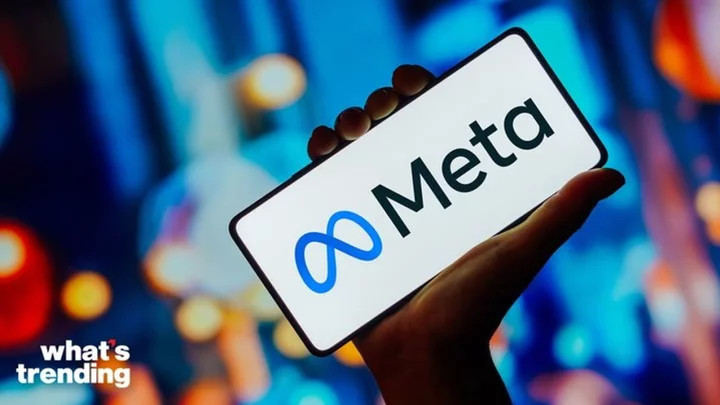Meta is being sued by 41 states over ‘addictive’ content allegedly harmful to children
Mark Zuckerberg's Meta is facing lawsuits from 41 states alleging there are addictive features aimed at hooking young users. The filings allege that Meta knowingly uses features on their platforms Instagram and Facebook to pull in and addict children. States are also claiming that Meta's algorithms were designed to coerce children into harmful content with features like "infinite scroll" and persistent notifications hoooking young users to continue using the app. Meta has been accused of violating federal privacy laws for children and consumer protection laws. The 233-page joint complaint obtained by Deadline, states: "Research has shown that young people's use of Meta's Social Media Platforms is associated with depression, anxiety, insomnia, interference with education and daily life, and many other negative outcomes. "Nonetheless, Meta has continued to deny and downplay these harmful effects to the pubic and to promote its Platforms as safe for young users." The complaint also said that the company's "motive is profit, and in seeking to maximise its financial gains, Meta has repeatedly misled the pubic about the substantial dangers of its Social Media Platforms." Weighing in on the lawsuit, a Meta spokesperson said: "We share the attorney general's commitment to providing teens with safe, positive experiences online, and have already introduced over 30 tools to support teens and their families. We're disappointed that instead of working productively with companies across the industry to create clear, age-appropriate standards for the many apps teens use, the attorneys general have chosen this path." In May, U.S. Surgeon General Vivek Murthy called social media a "profound risk" for youth and encouraged parents to restrict their children's access to it. Sign up to our free Indy100 weekly newsletter How to join the indy100's free WhatsApp channel Have your say in our news democracy. Click the upvote icon at the top of the page to help raise this article through the indy100 rankings.
Mark Zuckerberg's Meta is facing lawsuits from 41 states alleging there are addictive features aimed at hooking young users.
The filings allege that Meta knowingly uses features on their platforms Instagram and Facebook to pull in and addict children.
States are also claiming that Meta's algorithms were designed to coerce children into harmful content with features like "infinite scroll" and persistent notifications hoooking young users to continue using the app. Meta has been accused of violating federal privacy laws for children and consumer protection laws.
The 233-page joint complaint obtained by Deadline, states: "Research has shown that young people's use of Meta's Social Media Platforms is associated with depression, anxiety, insomnia, interference with education and daily life, and many other negative outcomes.
"Nonetheless, Meta has continued to deny and downplay these harmful effects to the pubic and to promote its Platforms as safe for young users."
The complaint also said that the company's "motive is profit, and in seeking to maximise its financial gains, Meta has repeatedly misled the pubic about the substantial dangers of its Social Media Platforms."
Weighing in on the lawsuit, a Meta spokesperson said: "We share the attorney general's commitment to providing teens with safe, positive experiences online, and have already introduced over 30 tools to support teens and their families. We're disappointed that instead of working productively with companies across the industry to create clear, age-appropriate standards for the many apps teens use, the attorneys general have chosen this path."
In May, U.S. Surgeon General Vivek Murthy called social media a "profound risk" for youth and encouraged parents to restrict their children's access to it.
Sign up to our free Indy100 weekly newsletter
How to join the indy100's free WhatsApp channel
Have your say in our news democracy. Click the upvote icon at the top of the page to help raise this article through the indy100 rankings.

